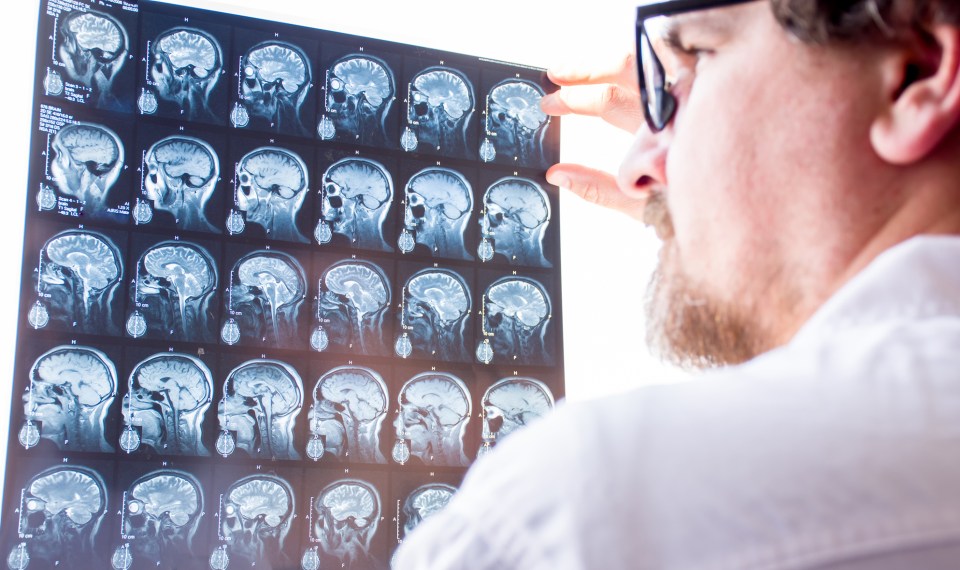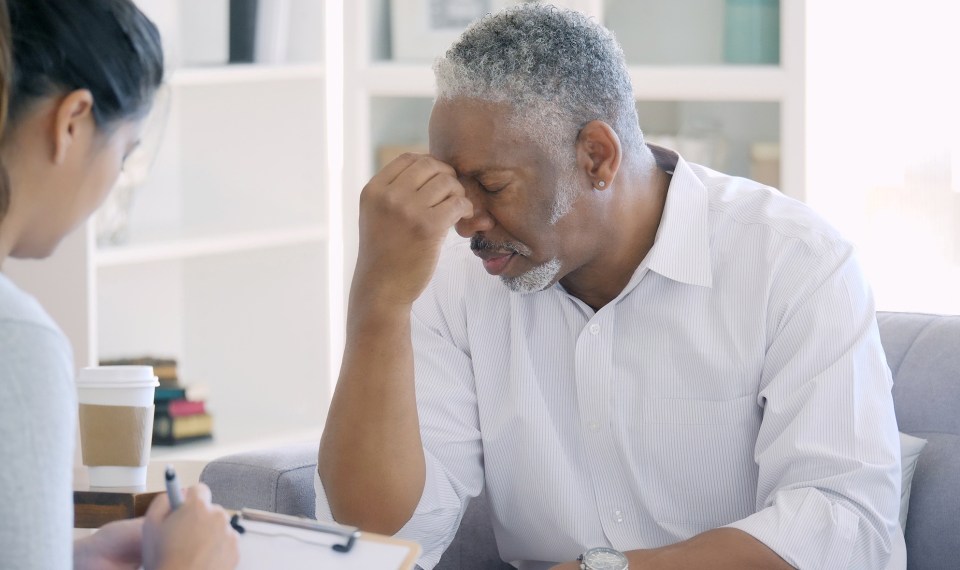It didn’t take long for Francine Johnson to catch Joe Pender’s eye some 30 years ago. The pair worked in different departments of the same company when Pender asked Johnson if she wanted join him to get fried shrimp for lunch—her favorite. They hit it off and soon began dating.
In the early days of their relationship, the two would lie in the floor of Pender’s apartment listening to music. “Slow Jam” by Midnight Star became the song that defined their relationship—they danced to it for the first time in Pender’s apartment and continued to dance to it throughout their 32 years of marriage.
“That song was our first dance. It said how we felt, and how we still feel today,” Pender said. “That song was special to both of us. She’ll hear it in her sleep and wake up with a smile.”
After Johnson suffered a stroke that left her unable to walk or speak, Pender chose Encompass Health Lakeshore for his wife’s rehabilitation. While there, the couple learned that rehabilitation, like dancing, works best when you choose the right partner.
Surviving a stroke
On a Tuesday morning, Johnson complained of sinus issues, but nothing severe. Pender went outside to pressure wash the driveway, and when he came inside, he found Johnson in deep prayer.
“When I walked back in the room, she was pacing and kept saying, ‘Jesus help me,’” Pender said. “I told her, ‘Say my name,’ and she couldn’t. She just kept looking at me with those eyes. I can still see those eyes right now.”
Pender recognized that Johnson was having a stroke—she’d had a previous stroke many years ago—and called 911. Paramedics rushed her to a local hospital, but due to COVID-19 visitor restrictions, Pender wasn’t able to go inside.
“I sat in the parking lot and just boohoo cried,” he said. “I talked to God and said, ‘You’ve got to do something.’”
Johnson was transferred to another hospital for further treatment. Doctors told Pender that the stroke was causing a midline shift in her brain, and she likely had only a 1 percent chance of survival. They could give her medication, but it was a waiting game, and Johnson was unlikely to survive more than 24 hours.
A day later, Johnson was still stable. The following day, doctors told Pender that the bleeding had subsided and Johnson exceeded their expectations, but she was still in critical condition and facing severe deficits.
“The doctor called me and said, ‘I don’t know what god you prayed to, but I’m going to start praying too, because this is truly a miracle,’” Pender said. “She is the woman that has prayed for everybody, except for herself. I know that she’s God’s angel. She didn’t ask for a blessing for herself, but I did.”
Choosing the right rehabilitation partner for stroke recovery
Although Johnson had beaten the odds and survived her stroke, doctors told Pender that she still faced a long, difficult road to regaining her independence that would possibly not be successful.
Pender knew that he would do what it took for his wife to have the best chance at recovery, whatever that might look like. Doctors gave Pender a list of rehabilitation providers in the area, but he was unfamiliar with the options since the couple had moved to the Birmingham, Alabama area from Miami only a few years ago.
“I told the doctor, ‘Let me ask you a question. If it was your husband, son, daughter, mother, father, where would you send them?’ She said Encompass Health,” Pender said.
Pender asked other trusted friends for their thoughts, and even received a recommendation from a stranger in line at the Walmart checkout when the topic somehow came up. It was a consensus—Johnson’s best chance for recovery was at Encompass Health Lakeshore Rehabilitation Hospital.
Beginning with the basics
Johnson arrived at Encompass Health Lakeshore unable to speak, swallow or sit up on the edge of the bed unattended as her brain continued to heal following the stroke.
“I remember going into the room and she was laying in the bed, and she was hard to rouse,” said Van Huynh, therapy manager. “She was unable to speak and was moaning. I tried to use a communication board to communicate with her, but she couldn’t even point to it. I knew she had significant impairments and that it was going to be a long road to recovery.”
Therapists started slowly, meeting Francine where she was in her recovery.
“We started with bed mobility,” said Bridget Feltz, physical therapist. “We needed to work on sitting balance and just staying upright. That big aspect affects a lot of other mobility. You have to have balance to move into the chair, to stand and to walk, so we started with the basics.”
In addition to her physical impairments, Johnson was also struggling to speak and swallow. Speech-language pathologists worked with her on the basics of language, starting with vowel formation. As she progressed, they implemented singing and other familiar actions. Electrical stimulation helped her improve her ability to swallow.
Dancing together again
Throughout her rehabilitation stay, Johnson was very emotional—a common side effect of a stroke. Fortunately, Pender was able to be by her side as visitation rules allowed one family member to be present for caregiver education.
When Johnson seemed particularly upset during therapy one day, Pender knew exactly what to do. He grabbed his phone and asked his bride to dance to their song.
Using a bodyweight support system, Huynh helped Johnson stand. Together, Johnson and Pender danced to their song and cried while those in the therapy gym cheered them on.
“I knew that that song would do something to her and kick start her psyche,” Pender said. “I wanted her to remember my love for her. I wanted her to know that she was safe with me and that I was there.”
That moment was a turning point of sorts for Johnson, who continued to make small but substantial strides in her rehabilitation.
“They saw that there were glimmers here and there, and they went after the little glimmers—the little lights—that she responded to and focused on those,” Pender said. “The little things they were doing were changing her. She wanted to get better. She wanted to be my Francine again.”
At the time of her discharge, Johnson still struggled to walk on her own and communicate, but the glimmers that sparked at Encompass Health Lakeshore continued to burn brighter. Now, Johnson is completely independent. While she cannot read as she once did and still faces some lingering effects of aphasia, she is able to communicate her wants and needs. Most importantly, she and her husband are dancing to “Slow Jam” once again.
“I can see into our future, and it’s fabulous,” Johnson said. “It’s good. It’s all good.”
The content of this site is for informational purposes only and should not be taken as professional medical advice. Always seek the advice of your physician or other qualified healthcare provider with any questions you may have regarding any medical conditions or treatments.


